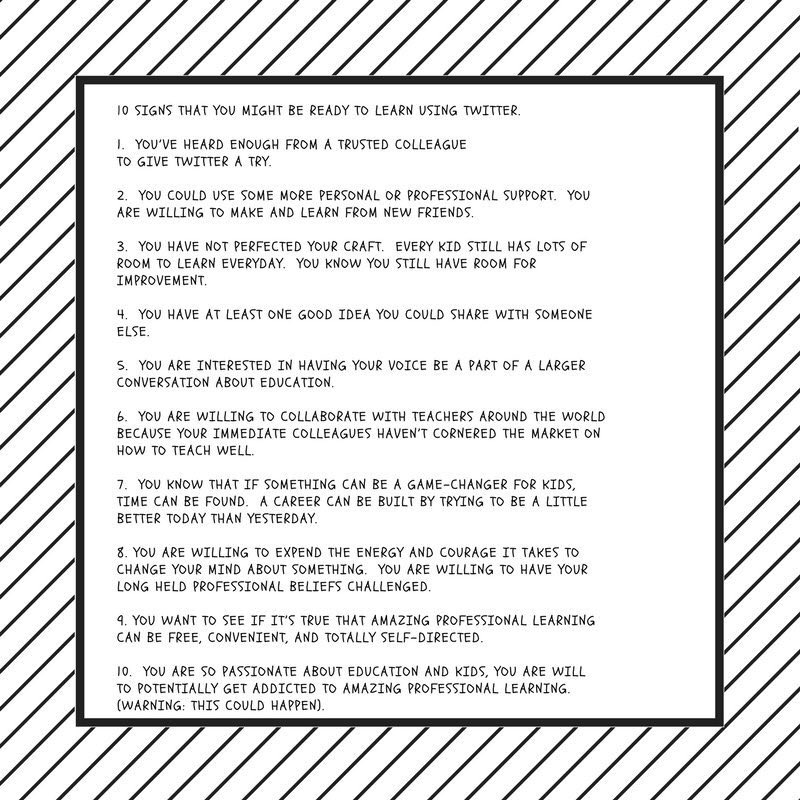George Couros had a great post recently, Relationships Are the Foundation of Great Schools (But They Aren't Enough). He points out that it's essential to build great relationships in schools, but we can't stop there. It's also essential to leverage strong relationships into growth for self and others. We become stronger when we are connected and when we are committed to pushing for better outcomes.
This discussion reminded me of the study from Judith Kleinfeld (1975) where she coined the term Warm Demander to describe teachers who are both warm (relationship builders) and demanding (communicating high expectations). She found that students whose teachers combined these qualities were more successful academically. But I'm guessing they were also more successful in a whole variety of ways.
I've noticed over the years just how difficult it can be to balance warmth and expectations. Some people tend to be really relationship-oriented but struggle to communicate and insist on high expectations. Others have very high expectations and push students to succeed but don't make the personal connections that are needed to go next level.
I believe students will always do better with a teacher who cares about them, believes in them, and seeks to know them better. Strong relationships are extremely valuable in the classroom. The teacher who is demanding but fails to build relationships may get results in the short term, but it will probably only last as long as they are still pushing.
The teacher who can build relationships while maintaining high expectations has the best chance to inspire learning. They can have a transformational impact. They help a student have a pivotal experience. They help them change directions. The student takes a new path entirely because of the influence of the teacher.
From the beginning, warm-demanding teachers are communicating with students that they are going to push them. They let their students know they have very high expectations because they care about them. Let students know up front that you're going to expect more of them than they think they can give. Then it won't be a shock when you actually do expect more of them than they've been used to.
I noticed this tweet from Tobie Taylor Jones and thought it captured the essence of the warm-demanding teacher.
I wrote this for my students. It was inspired by another piece; please forgive me as I don’t know the original author who inspired me! All my students have read it. After being with me for 1/2 the year, they said this is accurate! I hope they know I love them. @Bville_Schools pic.twitter.com/Vcn6qF9GRj— Tobie Taylor Jones (@tobiemichele) February 3, 2018
It's so important to bring this type of energy and attitude to the classroom. Life will be demanding, and kids can't develop the resilience and perseverance needed if they aren't pushed out of their comfort zones. We don't want to send kids out of our schools believing they are entitled. In life, you must work for everything you get.
Here are some other resources that provide more information about what it means to be a warm-demanding teacher. It's important to build relationships and be relentless to ensure students are meeting their growth potential.
Being a Warm Demander - Steve Barkley
How does a teacher communicate caring and expectational beliefs in a way that most positively impacts student achievement? Judith Kleinfeld coined the term warm demanders when describing teachers who most successfully supported student achievement. Creating four quadrants with a vertical scale running from low to high expectations and a horizontal scale running from low to ...
--------------------
The Warm Demander: An Equity Approach | Edutopia
"Warm demander" teachers expect great things from their students, convince them of their own brilliance, and help them reach their potential in a disciplined, structured environment. Recently, I was talking with a high school student about his frustrations with a first-year teacher. The student said, "I like [the teacher] because he's understanding, but he doesn't require enough discipline.
--------------------
(null)
--------------------
Where are you on this continuum? Do you build relationships while also being relentless? I think it's true for teachers and for school leaders. It's important to be caring and to communicate expectations. Leave a comment below or respond on Facebook or Twitter. I want to hear from you!









